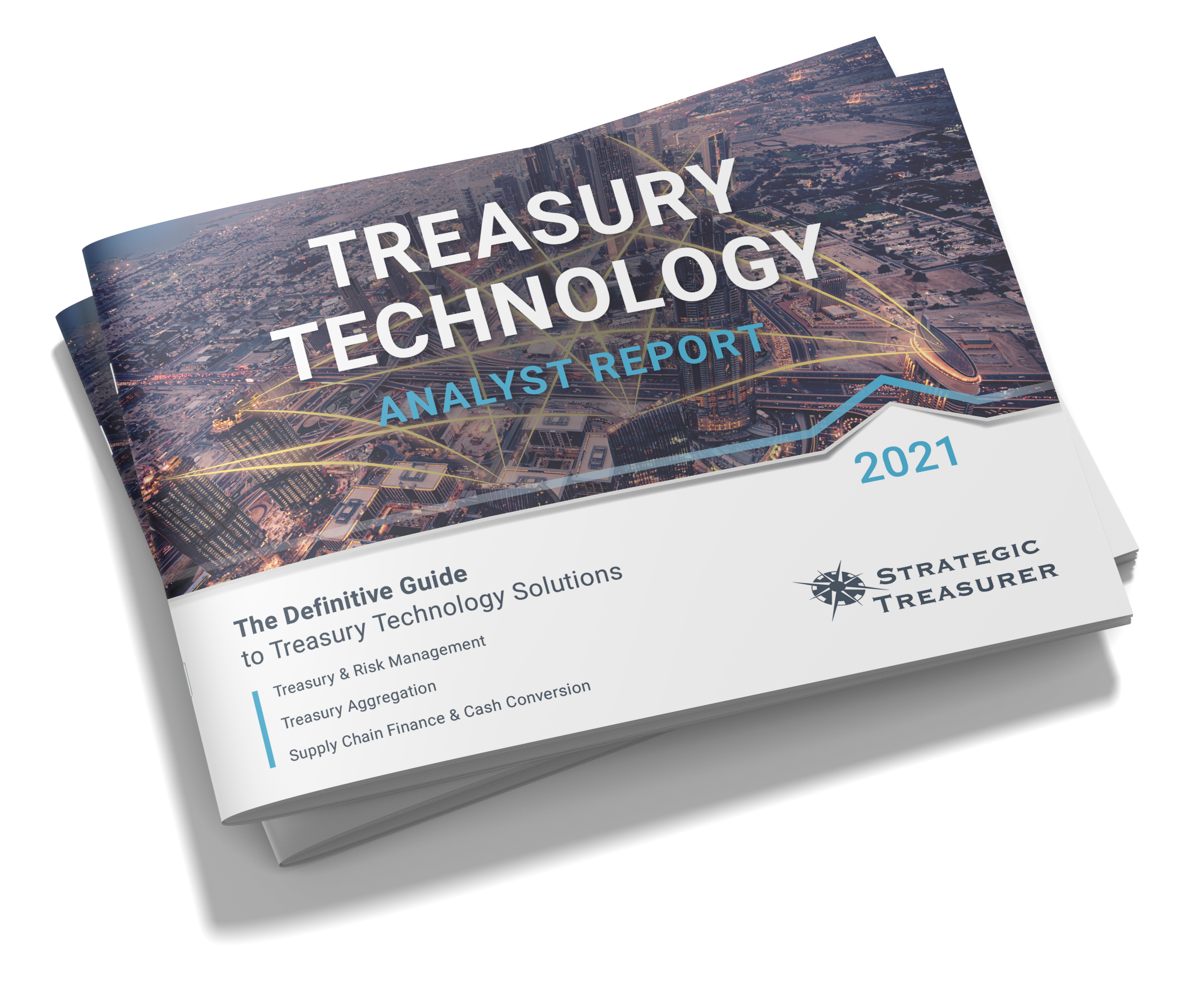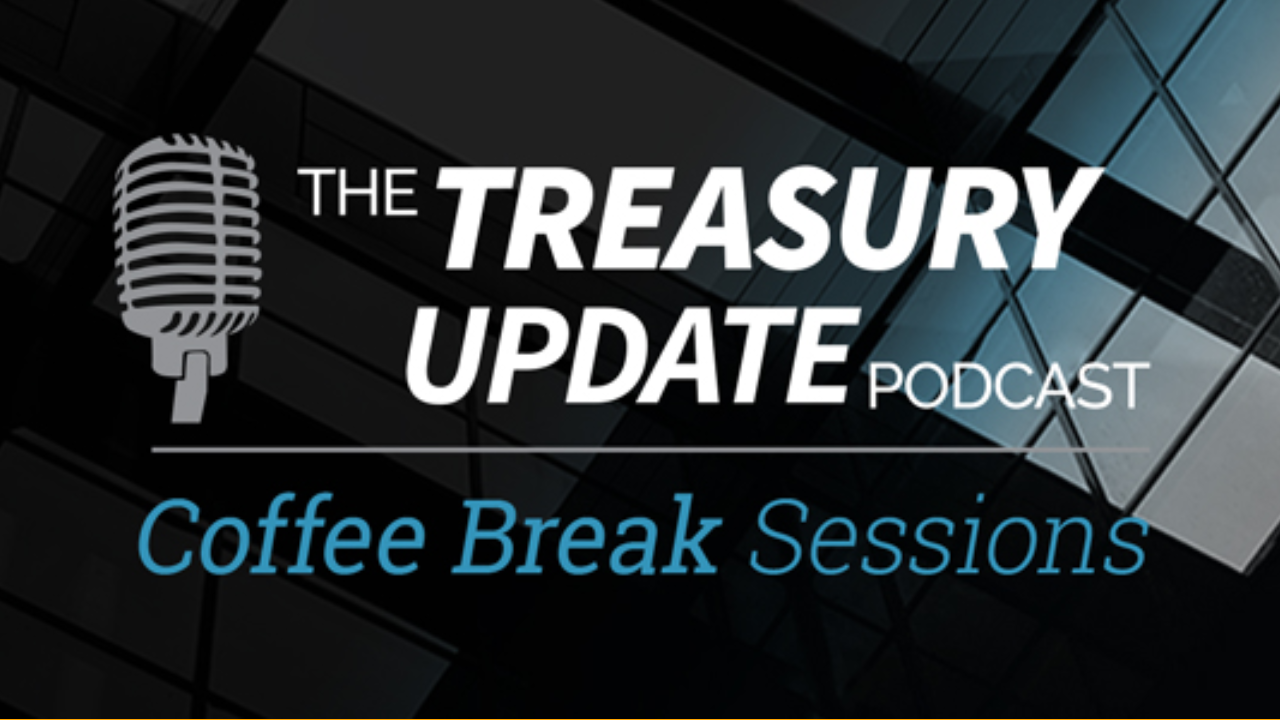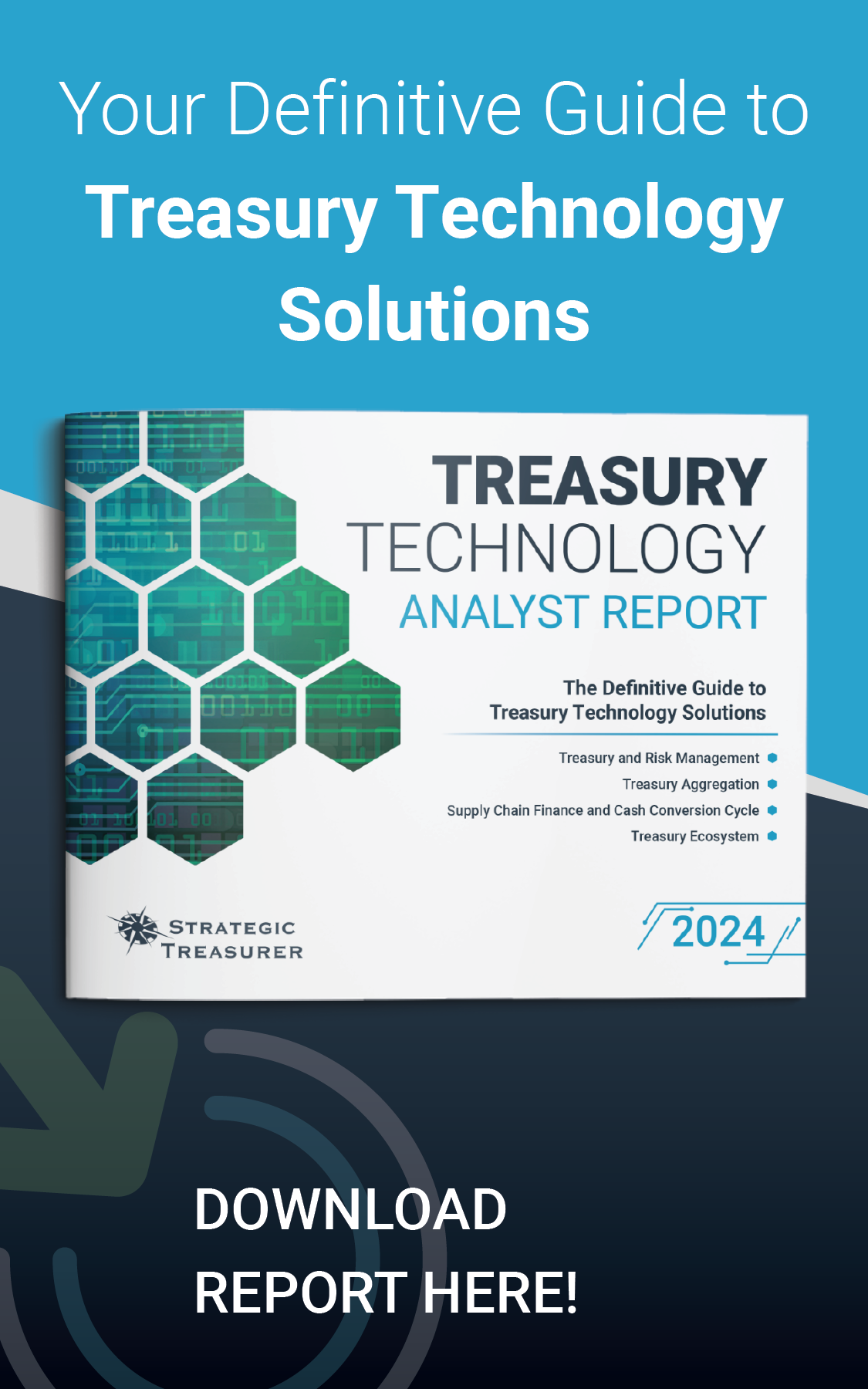
Session 61
Coffee Break Session:
What Is Supply Chain Finance?
Host:
Alexa Cook, Strategic Treasurer


Speaker:
Craig Jeffery, Strategic Treasurer


Episode Transcription - (Coffee Break Session Series) - Episode 60 - What Is Supply Chain Finance?
Alexa Cook 0:08
Welcome to The Treasury Update Podcast Coffee Break session, the show where we cover foundational treasury topics and questions in about the same amount of time it takes you to drink your coffee. This is your host Alexa and today I’m joined with Craig Jeffrey Managing Partner at Strategic Treasurer. Welcome back, Craig.
Craig Jeffery 0:25
It’s good to be back. Alexa. Thank you.
Alexa Cook 0:26
Yeah. So, today we’re going to take a look at supply chain finance. So, can you start us off by just giving us kind of a high level definition of supply chain finance?
Craig Jeffery 0:39
I’ll start with a relatively simple definition and then move to a much better definition. The simple one is supply chain finance is really using receivables and payables to pull more money out of the cash conversion cycle so that either the buyer or the seller can take advantage of that activity. But the better definition is provided by the Euro Banking Association. We really like that one. It’s the use of financial instruments, practices, and technologies to optimize the management of working capital and liquidity tied up in supply chain processes for collaborating business partners. So, it looks at receivables, payables, from procurement all the way to cash. So, each of those areas is in scope there.
Alexa Cook 1:28
Yeah, you kind of said that in your simple one that it was taking money out of that cash conversion cycle so that either the buyer or the seller could take advantage of that activity. So, what would a seller led approach or you know what, what’s it going to look like on the selling side of that?
Craig Jeffery 1:42
Yeah, that’s a good question. There are some seller led approaches buyer led approaches and there some other areas that we would call related approaches from a supplier or seller related approach that’s usually focused on accounts receivable. And so, when we look at the seller side of things, you would look at services like factoring forfaiting, invoice discounting, inventory financing, so I’ve got a receivable and that’s an asset, how do I turn that asset into cash more quickly? And so those are some of the different ways that a supplier or seller led approach can manage it.
Alexa Cook 2:24
What about on the other side or on I think you said it was the buyer led approach.
Craig Jeffery 2:28
Yeah, the buyer led approach most people think about these as counts payable centric type solutions. So, I’m making payments, so things like reverse factoring and dynamic discounting are common elements that we classify as a supply chain finance type solution. Not everyone classifies dynamic discounting that way but another method on the AP side, the buyer side, being able to create some leverage in the timing and use of funds, whether it’s their funds, the other party’s funds, or perhaps a bank.
Alexa Cook 3:06
So, we should be taking a look at supply chain financing as a whole.
Craig Jeffery 3:11
I think there’s a lot of organizations that would want to consider supply chain financing. It could be organizations that are looking at pulling working capital out but don’t want to harm their trading partners. Pulling it out of their cash conversion cycle processes. They want to gain efficiency, improve their own liquidity position. That could be organizations that have excess cash and wants to deploy it in a way that’s effective. So, for example, if you have a lot of excess cash, you don’t want to just pay your suppliers early with no return. There might be a method there where you can make that cash available to them earlier which you pay a traditional 210 net 30 type terms where if you pay in 10 days as opposed to 30 you get a 2% discount. Well, you may want to deploy your cash that way. So whether you’re a buyer, or seller, there are oftentimes good opportunities for organizations to take advantage of this range of offerings that exist in the past that might be you’re a very large buyer, you got a lot of power, or you have a lot of receivables and you could get credit from a bank by putting your assets up for either factoring basis or some kind of invoice discounting or inventory financing. Your banks might provide the financing, but you got to be a certain size, where you’re getting your money from had to come from a certain level or quality of payers that would be underwritten by the bank. Now there’s a number of tools that allow companies to expand on that from both directions.
Alexa Cook 4:51
Like definitely makes sense. And you know, through this conversation, you’ve mentioned a couple of other topics that we will be covering in the future, which include factoring, reverse factoring, and some of that dynamic discounting. So, to all of our listeners, we will be covering those in more depth in future episodes. But to do a quick recap on the supply chain financing side, it’s really, you know, kind of using or leveraging those receivables and payables to pull some of that money out of that cash conversion cycle, benefiting either the buyer or the seller on these activities. And I like how you said that a lot of organizations would want to consider supply chain financing, especially if you have that excess cash, you don’t really want to pay your suppliers really want to make sure you’re getting some kind of advantage on that whether it’s a discount or what have you. Was there anything you wanted to add to that, Craig?
Craig Jeffery 5:39
No, I think that’s a good summary and that idea of your assets, your liabilities, there’s opportunities to put those to use in different ways. It’s not a zero-sum game. If we look at things differently, if I pay later, you receive you receive later, I win, you lose, there’s other ways of changing the dynamics there of entering a third party who may like let’s say a bank or a finance company can change it. So, maybe I can pay later, but you can also collect earlier. So, my move towards efficiency gives us more flexibility. So yeah, great summary. Thanks.
Alexa Cook 6:17
For all of our listeners. Thank you for joining in and make sure you tune in every first and third Thursday of the month for a new episode. And as always, if you have any questions, comments, or topic suggestions, we’d love to hear from you. You can reach out to us at podcast@strategictreasurer.com Thanks again, Craig.
OUTRO 6:37
This podcast is provided for informational purposes only, and statements made by Strategic Treasurer LLC on this podcast, are not intended as legal, business, consulting, or tax advice. For more information, visit and bookmark strategictreasurer.com.
Researching new treasury and finance technology can be overwhelming. Strategic Treasurer has stepped in to help. Explore our definitive guide to the treasury technology landscape and discover detailed, data-based coverage of:
- Treasury & Risk Management Systems
- Treasury Aggregators
- Supply Chain Finance & Cash Conversion Cycle
A part of the Treasury Update Podcast, Coffee Break Sessions are 6-12 minute bite-size episodes covering foundational topics and core treasury issues in about the same amount of time it takes you to drink your coffee. The show episodes are released every first and third Thursday of the month with Special Host and Treasury Consultant Alexa Cook of Strategic Treasurer.




